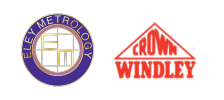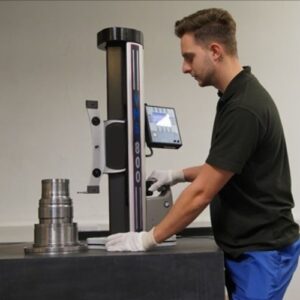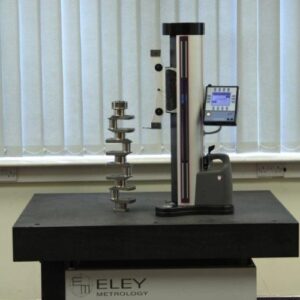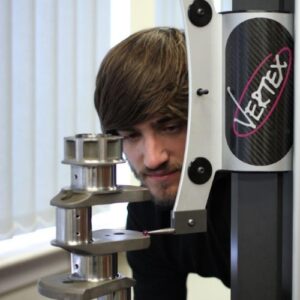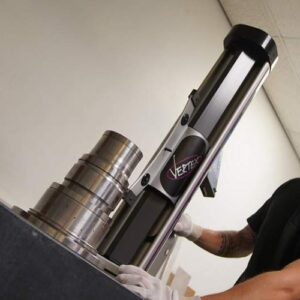The Eley Metrology team specialises in calibration and certification for a wide range of digital height gauges. Like all precision instruments, digital height gauges require regular calibration and certification to ensure accuracy. When measuring equipment is relied upon to be accurate, the operator must be confident in the output results. With regular calibration and certification, a digital height gauge can maintain its optimal performance. Your business investment in these high-calibre tools is also protected.
What are Digital Height Gauge Calibration Requirements?
The calibration requirements for individual digital height gauges depend on the level of usage and the conditions and environment in which they are employed. For example, a digital height gauge used daily in a dusty area will require calibration more frequently than one used only once a month.
The timing for calibration checks would typically be stated within a quality manual that covers all audit inspection requirements for the business. It is recommended that precision measuring equipment have a valid certificate of calibration to ensure it retains its optimum performance and accuracy. If the company does not have confirmed inspection requirements, an annual calibration is advised.
Measuring Equipment Calibration
Before a calibration certificate is issued, the digital height gauge is checked for perpendicularity in both the front plane as well as the side plane.
Once all adjustments and checks are completed, the final calibration test can be performed. This work can be completed on-site, and Eley Metrology offers both ‘In-house’ and a UKAS Certificate of Calibration.
Multi-Brand Calibration Expertise
Eley Metrology offers calibration and certification services for digital height gauges from a number of manufacturers, including:
- - Mitutoyo
- - Tesa
- - Trimos
- - Mahr
- - Sylvac
Our expertise extends across these major brands, ensuring your precision instruments maintain their accuracy regardless of manufacturer.
Why is Calibration Vital?
1. Wear and Tear
No matter how well you maintain equipment, parts will eventually wear out over time. This means that measuring devices become unreliable and need checking. Regular calibrations are necessary to verify whether measuring points have shifted. During calibration, any irregularities with the device will be identified, and the machine can then be certified as accurate.
2. Auditing Process
Certified calibrations are a UKAS requirement to ensure correct quality control. Following an auditing process is an important business practice. If your audit process is kept up to date, any quality control queries can be dealt with efficiently and without concern.
3. Costs
An unexpected machinery breakdown can be costly for a few reasons. Firstly, if the device is the only one in the business, the work it performs will have to pause, potentially resulting in a loss of income. Preventive calibration helps identify potential issues before they cause operational downtime. Regular calibration also helps extend the lifespan of your precision equipment.
4. Safety
Regular calibration of equipment ensures sound operational systems that create a safe working environment. Working with machinery that involves moving parts creates a risk. Calibration of equipment will identify any small errors that, if not fixed, could result in an accident.
5. Product Recalls
In manufacturing, quality control is crucial to have records of checks and procedures in place to maintain standards. Reliable equipment can form part of quality checks to highlight any issues before items are delivered. Well organised and planned quality checks reduce the risk of product recalls. If a recall does occur the quality control measuring process will demonstrate that all required checks have been completed and the search for the issue can move on.
Planning regular calibration may feel like an unnecessary task, but these essential checks can save money, maintain quality standards, and avoid operational risks.
Find Out More
If you’d like more details about our digital height gauge calibration and certification service, then our team are available to help.
Call Us: 01332 367475
Email: sales@eleymet.com
Send your enquiry via our contact form below;

